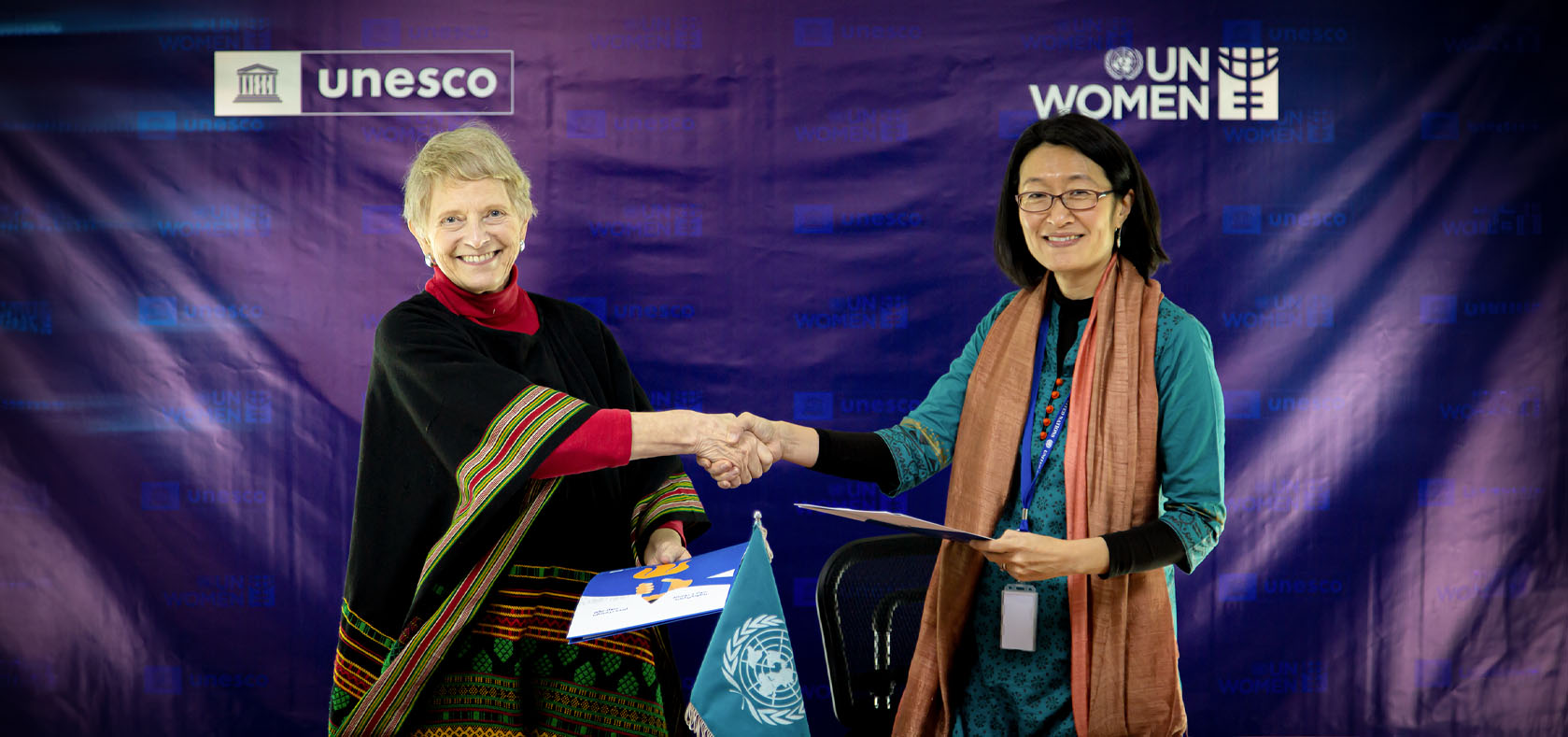With funding from the EU, UN Women and UNESCO partner to support literacy and skills development for women in Afghanistan
Education for a Brighter Future
Date:


KABUL, Afghanistan — With generous financial support from the EU, UN Women and UNESCO entered into a partnership to implement a project titled “Empowering women and adolescent girls in Afghanistan through literacy and skills development for sustainable livelihoods.” The project aims to provide access to education, skills development, and counseling services for illiterate and semi-literate Afghan women and adolescent girls.
Through this partnership, UN Women will leverage UNESCO’s education programme as entry point to reach vulnerable women and girls, particularly in the remote areas, who will be equipped with the tools and knowledge to improve their livelihoods, increase their resilience and economic independence, enhance their overall well-being, so they can have a life free from violence. This is a one-year project, with a total budget of almost one million US dollars, which will support 3,900 learners in the northern and southeastern regions of Afghanistan. It will also provide employment opportunities for around 200 women as facilitators and support staff.
The project offers basic literacy education, livelihood skills development, and psychosocial counseling to the participants, enabling them to acquire the knowledge and skills necessary for socio-economic empowerment and resilience. It also raises awareness within the target communities about the importance of women's access to basic education and the positive impact of educated and skilled women and girls on society and the quality of life for families.
Furthermore, the project strives to promote healthier relationships within the families and communities through a tailored curriculum and teaching materials. Another important component of the project is to provide Mental Health and Psychosocial Support (MHPSS) and counseling to 1,950 selected learners to develop more productive livelihoods and take active roles in transforming their families and communities.
This is a timely and relevant initiative that is expected to contribute to the achievement of the Sustainable Development Goals (SDGs), particularly SDG 4 (Quality Education), SDG 5 (Gender Equality), and SDG 8 (Decent Work and Economic Growth).